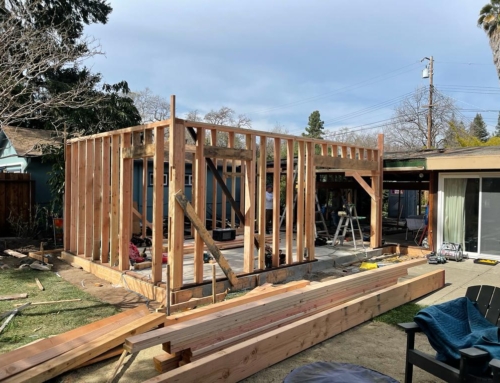In the dynamic world of construction, the role of a general contractor is pivotal. Picture a symphony conductor, orchestrating a harmonious blend of various elements to create a masterpiece. Similarly, a general contractor is the conductor of a construction project, ensuring all components work seamlessly together.
What is the Role of a General Contractor?
The role of a general contractor mainly serves as the orchestrator and overseer of a construction project from inception to completion. This professional is the central figure responsible for coordinating various aspects of the project, ensuring it progresses smoothly, stays within budget, and meets specified quality standards. Here’s an in-depth look at the multifaceted role of a general contractor:
Project Coordination: At the core of the role of a general contractor are the responsibilities in project coordination. They act as the central point of contact for all involved parties, including subcontractors, suppliers, and clients. Coordinating these entities ensures that everyone is aligned with the project’s goals and timelines.
Management of Subcontractors: The second role of a general contractor is to manage and oversee subcontractors who specialize in specific trades, such as plumbing, electrical work, or carpentry. They ensure that each subcontractor performs their tasks efficiently and in accordance with the project’s requirements.
Timeline Oversight: Timely completion is crucial in construction projects, and the role of a general contractor is to excel at timeline oversight. They create realistic project schedules, monitor progress, and make adjustments as needed to avoid delays and keep the project on track.
Budget Management: Controlling costs is a key aspect of the role of a general contractor. From the initial budgeting phase to ongoing financial management, they work to optimize resources, negotiate favorable terms with suppliers, and prevent unnecessary expenditures.
Quality Assurance: General contractors are responsible for maintaining high-quality standards throughout the construction process. They implement and oversee quality control measures, ensuring that the final product meets or exceeds industry and client expectations.
Compliance with Codes and Regulations: An important role of a general contractor is navigating the complex landscape of construction codes and regulations is a critical function. General contractors ensure that the project complies with all applicable laws, securing necessary permits and approvals to avoid legal complications.
Risk Mitigation: Construction projects inherently involve risks, and general contractors are skilled at identifying and mitigating potential issues. The role of a general contractor is the proactive approach that minimizes the likelihood of delays, disputes, or other challenges that could impact the project’s success.
Communication Hub: Effective communication is the linchpin of a successful construction project. The role of the role of a general contractor is to serve as the primary communication hub, fostering collaboration among all stakeholders and addressing any concerns or issues that may arise.
Problem-Solving: Challenges are inevitable in construction projects, and the role of a general contractor is to troubleshoot and problem-solve. Their experience allows them to navigate unexpected issues and find practical solutions, keeping the project on course.
Benefits/Advantages: Mastering the Craft
- Streamlined Communication: A skilled general contractor serves as the linchpin, facilitating effective communication among subcontractors involved in the construction project. This ensures that all parties are on the same page, minimizing misunderstandings and enhancing collaboration.
- Timeline Management: General contractors are adept at managing project timelines, ensuring tasks are completed efficiently and on schedule. Their expertise allows for strategic planning, preventing delays and maintaining project momentum.
- Quality Control Oversight: With expertise in construction, they oversee quality control measures, maintaining high standards throughout the project. This attention to detail results in a final product that meets or exceeds industry standards.
- Code and Regulation Compliance: Navigating complex construction codes and regulations, general contractors ensure that the project complies with legal requirements. This helps prevent costly legal issues and ensures a smooth approval process from relevant authorities.
- Cost Savings: Utilizing their network of reliable suppliers, general contractors can lead to cost savings through efficient procurement. By leveraging relationships with suppliers, they can secure materials at competitive prices, contributing to overall project cost-effectiveness.
- Negotiation Skills: Their negotiation skills play a crucial role in driving down overall project expenses, optimizing budget utilization. General contractors negotiate contracts, ensuring favorable terms and conditions, ultimately benefiting the project’s financial health.
Tips/Advice: Crafting Success
- Clear Communication: When engaging a general contractor, emphasize the importance of clear communication to articulate your vision, expectations, and budget constraints. Open communication fosters a collaborative environment and helps avoid misunderstandings that could lead to costly mistakes.
- Detailed Contract: Insist on a detailed written contract outlining all project specifics, including timelines, milestones, and payment schedules, to avoid misunderstandings. A comprehensive contract provides a clear roadmap for the project, setting expectations and protecting both parties involved.
- Regular Check-Ins: Maintain transparency through regular check-ins and updates with the general contractor to identify and address potential issues before they escalate. Regular communication allows for proactive problem-solving and ensures that the project stays on track.
What’s at Stake: The Risk of Cutting Corners
Delays and Budget Overruns: Without a skilled overseer, projects are susceptible to delays and budget overruns, compromising the overall success. General contractors mitigate these risks by implementing effective project management strategies.
Quality Issues: The absence of a general contractor may lead to compromised quality in construction, affecting the durability and aesthetics of the final product. Their expertise ensures that quality standards are met throughout the construction process.
Legal Complications: Code violations can result in legal complications, leading to hefty fines or even project shutdowns, emphasizing the importance of compliance. General contractors navigate regulatory landscapes, minimizing the risk of legal issues and ensuring project continuity.
Protecting Investment: Entrusting a project to a competent general contractor is crucial for protecting the investment and ensuring a successful outcome. Their oversight and management contribute to the project’s overall success, safeguarding the financial investment made.
Stages/Steps: Navigating the Journey
- Initial Planning and Budgeting: General contractors play a key role in the initial stages, contributing to planning and budgeting to set the foundation for the project. Their expertise aids in creating realistic project timelines and cost estimates.
- Construction Oversight: Throughout the construction phase, general contractors coordinate subcontractors, manage timelines, and troubleshoot issues to ensure a smooth progression. Their hands-on involvement minimizes disruptions and keeps the project on course.
- Final Inspections: In the concluding stages, they oversee final inspections, ensuring that the project meets quality standards and complies with all relevant regulations. This thorough examination guarantees that the final product aligns with the project’s initial specifications.
- Comprehensive Project Management: A general contractor oversees every step of the construction journey, providing comprehensive project management from conception to completion. Their holistic approach ensures that each stage is executed seamlessly, delivering a successful and high-quality end result.
5 FAQs About the Role of a General Contractor
- Q: Do I need a general contractor for a small project? A: Yes! Even small projects benefit from a general contractor’s expertise in project management, ensuring a smooth and efficient process.
- Q: How do I choose the right general contractor? A: Research, check reviews, and ask for referrals. Look for experience, licenses, and a portfolio of successfully completed projects.
- Q: Can I save money by managing subcontractors myself? A: While it may seem cost-effective initially, the lack of coordination and experience can lead to unforeseen expenses and delays.
- Q: What if my project faces unexpected issues? A: A seasoned general contractor anticipates and addresses challenges, mitigating potential setbacks and ensuring a successful outcome.
- Q: Are general contractors responsible for permits? A: Yes, a reputable general contractor handles all necessary permits, ensuring your project complies with local regulations.
Elevate Your Project with Green Group Remodeling
Ready to transform your construction project? Reach out to Green Group Remodeling, where expertise meets excellence. Let us conduct your construction symphony to perfection!
















